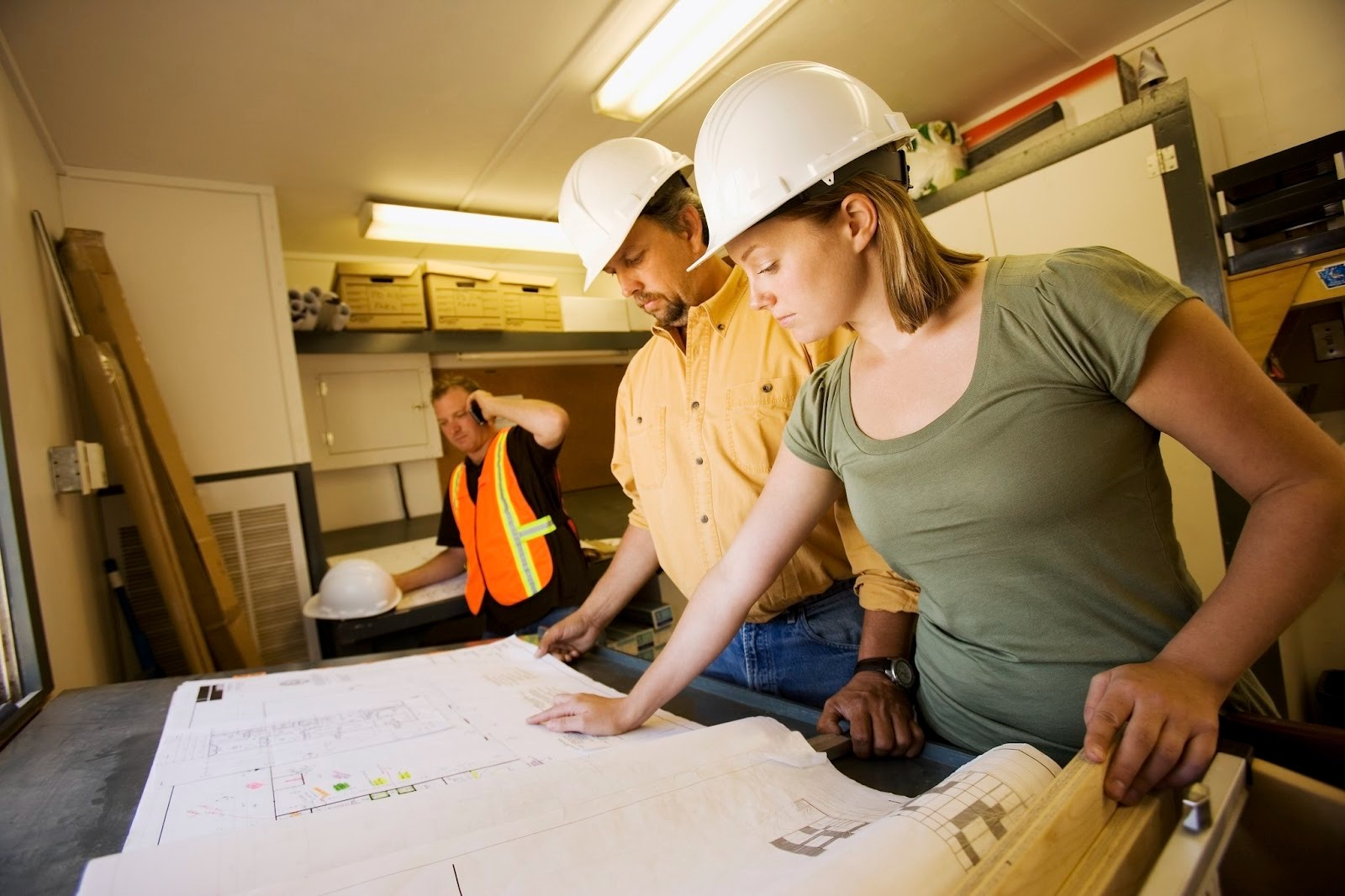How to Become a Certified Construction Estimator?

A construction estimator is an important part of the building industry because of their ability to accurately estimate the amount of money, time, and other resources needed to complete any building project. Estimators are involved in setting budgets, material planning, and reducing financial risks associated with residential developments, large-scale commercial projects, and infrastructure projects. A certified construction estimator may be a good career goal, especially for individuals who are analytical, careful with details, and can handle numbers.
Developing as a qualified construction estimator includes the combination of education, job knowledge, and professional credentialing. In case you intend to have a career in the construction business with good remuneration and a way of developing yourself, gaining recognition as a construction estimator is an intelligently planned and orderly method of establishing your talent and professionalism in the industry.
1. Understand the Role of a Construction Estimator
The career of a construction estimator is highly important to know before deciding to choose the profession. The estimators collaborate with architects, engineers, and contractors to assess planning and calculate the total construction cost that involves materials, labor, equipment, permits, overhead, and contingencies.
Key responsibilities:
-
Reading and interpreting blueprints and technical drawings
-
Calculating the needs of the materials, workforce, and time
-
With the help of software such as Bluebeam, PlanSwift, or CostX
-
Bid proposal generation and presentation
-
Re-estimation based on design or scope revisions
In many construction firms, estimators are also involved in pre-construction estimating services, which play a critical role in the early phases of planning. These services help owners, architects, and contractors understand project costs before the build begins, making it possible to optimize the budget and prevent overruns. Experience in pre-construction phases adds depth to an estimator’s skill set and often sets them apart when applying for certification.
2. Meet the Educational Requirements
The majority of employers would demand that a candidate have at least attained a high school education, and a higher education means a high likelihood of making it as a certified and competitive estimator.
Suggested courses of study:
-
Construction Management, Estimating, or Civil Engineering, Associate Degree
-
A degree in constructive science or construction engineering, quantity surveying, or any other related field with a bachelor's degree
3. Develop Key Skills

Estimators have to possess technical and soft skills in addition to their education to thrive.
Technical skills:
-
Good analytical skills and math skills
-
Construction material, code, and method knowledge
-
Proficiency in estimating and takeoff software
-
Familiarization with the rules of building and permissions
Soft skills:
-
Attention to detail
-
Negotiating and communication
-
Time management
-
Problem-solving
-
Team collaboration
These skills are honed by getting an internship or entry-level job in the construction industry.
4. Gain On-the-Job Experience
Estimating must be mastered through hands-on practice. A large portion of the certifications will need a minimum number of years of experience, which means becoming a junior estimator, assistant project manager, or construction technician can help.
How to develop experience:
-
Internship at a general contractor or in a construction firm
-
Estimator, project planning, or site supervisor at entry-level jobs
-
Serving under senior estimators to get familiarity with cost breakdowns and industry practices
-
In most cases, it usually takes 2- 5 years of experience to be eligible to take certification exams.
5. Choose a Certification Program
Although certification is not always required, it helps distinguish you in a business that can be a competitive business, and it is a possible requirement specified by an employer or government office.
The best certifications:
1. Certified Professional Estimator
Offered by: American Society of Professional Estimators (ASPE)
Eligibility: 5 years of experience or substantial incorporation of expertise and instruction
Requirements: Technician test, technical paper, ethics test
Industry: Residential Estimating, Commercial Estimating, and civil forms of estimating
2. Associate Constructor (AC) or Certified Professional Constructor (CPC)

Offered by: American institute of constructors (AIC)
AC: Junior, livable for new graduates
CPC: Certification at an advanced level
3. CCP (Certified Cost Professional)
Offered by: AACE International
Focus: Project controls, estimating, and cost engineering
Eligibility: Bachelor's degree + 4 years experience = 8 years without a degree
These certifications will enhance credibility, open the doors to better-paying opportunities, and most likely will result in career growth.
6. Prepare for the Certification Exam
After choosing the certification track, you will need to study hard to get ready for the exam. The study and topics are different in each program.
Examples of General examination topics are:
-
Principles and methodologies of estimating
-
Building materials and systems
-
Blueprint reading
-
Bidding strategies
-
Value engineering and cost control
-
Professional ethics and practice
To prepare, you may use textbooks, online courses, and preparation classes provided by such organizations as ASPE or AACE.
7. Stay Updated with Continuing Education
The construction sector is a dynamic industry. One of the systems or elements that keeps changing is the new software, new green building techniques, and legal codes. Since you are a certified estimator, you should take continuing education units (CEUs) to be able to keep your certification.
CE opportunities available:
-
Webinars/workshops online
-
Conferences, trade shows in the industry
-
Fine-tuning courses in estimating
-
Learning training of new software (e.g., Revit, AutoCAD, ProEst)
Not only does it keep your skills up to date, but it also makes you capable of keeping your certification valid.
8. Career Outlook and Salary
There is a great demand for construction estimating, which is due to the rising popularity of infrastructure projects and house building. The U.S. Bureau of Labor Statistics (BLS) lists around $71,000-$80,000 a year as the median salary of a construction cost estimator, based on experience, location, and specialization.
Certified professionals tend to earn more and can assume more of the list, which includes being a lead estimator, cost control manager, or project executive.
9. Tips for Success in the Estimating Field

-
Connect with others in the industry at ASPE or AACE, or CMAA meetings
-
Have a niche focus (e.g., electrical, mechanical, heavy civil, or green)
-
Write your work so that in case of any new job interview or promotion, you can use your work as a reference.
-
Seek the guidance of elders in estimation
-
Accelerate takeoffs with digital tools to do them correctly
-
Be ethical- transparency and integrity trump in estimating the costs
Conclusion
A certified construction estimator is an opportunity to have a promising career in which technical expertise and field application are combined. You can gain success and start your future career in construction after getting a good education, practical training, and a highly valued certification. No matter what you hope to achieve in the future estimating profession, whether it is working in a high-profile company or being your boss, having invested in certification and professional development will set you up in a growing profession.
FAQs
Do I need a degree to become a certified construction estimator?
No, you do not necessarily need a degree, but very much so and strongly suggested. Some certifications recognize similar work experience as a substitute for formal education.
What is the best certification for a construction estimator?
The most common ones are Certified Professional Estimator (CPE) of ASPE and Certified Cost Professional (CCP) of AACE International. It should be the most appropriate based on your field and career objectives.
How long does it take to become a certified estimator?
Normally, the required education and work experience necessary to take most certification exams takes 2-5 years.




